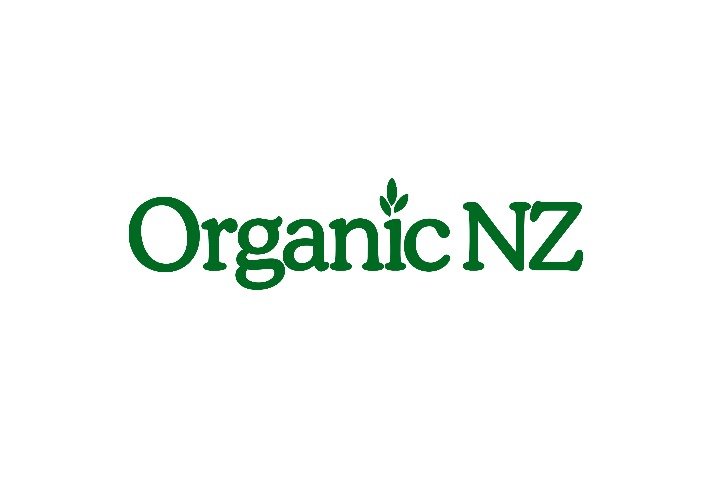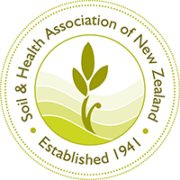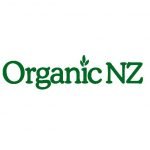Sheep, beef and organics – the path to success
West Otago farmer Allan Richardson has an exciting vision for the future of livestock farming in New Zealand. He would like to see as many farmers as possible producing organically, or at least incorporating as many organic systems as possible into their farming operations. Andrea Kydd-Law asked him why – and how.
Allan believes that New Zealand farmers will essentially have to make a choice between two paths. They can either move to large scale or factory type farming, based on high production with high inputs. This will require them to continually lift production while accepting commodity prices. Or they can look to maintaining small to large scale farms, producing products with differentiated qualities that can add value, such as those associated with organic certification.
For farmers beginning to struggle with lower prices for stock, higher input costs and competition from intensive overseas operations, organic farming makes sense for New Zealand farmers. Not only does it add value to the end product itself, input costs for production can be lowered and the overall health of the farm improved. There is also a burgeoning local and international market for organic meat products.
And if anyone has the farming and business credentials, along with the sheer passion to help turn this vision into a reality, it’s Allan Richardson.
Along with wife Sonia, Allan farms 1310 hectares of rolling hill country in West Otago. Originally developed from gorse and scrub by Allan’s father Collin, 500 hectares of their Avalon Farm is AgriQuality certified for organic sheep and beef production, and the Richardson’s are steadily moving towards organic certification for the entire farm. At this stage, the 810 hectare balance incorporates most of the farming system used under organic certification.
Allan became interested in organic production in 1997 while on a Kellogg’s leadership course. A few of the speakers mentioned the potential of organics and, keen to know more and believing it could make sense from a business perspective, Allan completed his course project on organic sheep farming.
In 1998, the Richardson’s trialed 35 hectares of their property in organic production and 125 hectares became certified in 2001 (now 500 hectares). Most of their product is marketed through PPCS, but they also sell some of their product under their Avalon Organics brand through their website and the Otago Farmers Market. They also sell directly to a number of top-end hotels. The branding of their product plays an important role in their business and there is a strong emphasis on creating an affordable, quality product that is associated with the Avalon brand.
For the Richardson’s, the lack of available information on organic sheep and beef farming on a large scale made the process more of a challenge than it might otherwise have been.
Fortunately Allan had started breeding his sheep for worm resistance several years earlier, before it had become common and before he had ever considered organic farming. Resistance to parasites is a big deal for organic livestock farmers. Although drench resistance has been a growing problem for conventional farmers for some time, Allan believes the farming industry has only recently started to seriously address this issue and look to genetics as a solution.
Avalon’s worm resistance programme has now been running for 19 years and it has provided big payoffs for the farm. Not only has it eased the conversion to organics by producing multi-disease resistant sheep, it has become a business in its own right under the Avalon Genetics trademark.
The Richardson’s have developed an ‘Ultimate’ sheep programme, breeding for key traits such as no belly or crutch wool, short tails, multi-disease resistance and longevity. The aim is to breed a super-low input sheep which cuts out all the hard work of sheep farming.
Recognition for what they are doing is evident with more and more organic farmers purchasing Avalon rams, as well as those considering the move to organics or with an interest in specialized breeds. Their ram, Bonnieview 55/01 was ranked fifth in New Zealand for meat and growth for maternal breeds.
Farm facts – Avalon Farm
The Richardson’s 1310 hectare sheep and beef farm is located near Heriot, West Otago.
Organic Farming:
– Farming organically since 1998
– 500 hectares certified organic by AgriQuality
– 470 hectares effective
– 5400 stock units at 11.5su/ha effective
– Sheep and Beef production – 3900 ewes, 850 ewe hoggets, 310 ram hoggets, 30 rams, 45 rising two year old steers and 50 one year olds.
– Stock under a maximum one life time drench policy.
Overall, Allan believes that “in order to successfully farm livestock organically, you’ve got to be a good stockman and have stock that are bred for resistance and low input. If your stock are healthy they can comfortably live with a small pest challenge”.
In terms of their overall farming practices, the Richardson’s have developed a system that incorporates holistic management based on economic, ecological and social outcomes; grazing management based on year round rotational grazing; multi disease resistant genetics; and the use of Probitas soil conditioner.
Probitas, developed by Ewan Campbell of Waihi, is a lime base soil conditioner that has been used on the Richardson’s farm for the past three years. The results of the soil and herbage tests that have been conducted before and since the introduction of Probitas have shown impressive results. Initially introduced to only 125 hectares, Probitas is now being used across the entire farm. Allan says that Probitas unlocks the nutrients from the soil and lets nature do the work, and he believes that it has the potential to “revolutionise the fertilizer industry”.
Allan says that overall New Zealand soils tend to have an excess of some nutrients and a deficiency in others. At this stage the Richardson’s add a few trace elements to complement the use of Probitas and balance things out, however Allan anticipates that this will not be required in the long term and that they will most likely only need to use Probitas every 2 to 4 years for maintenance purposes.
And bottom line according to Allan is “keeping the soil and plants healthy will give you healthy animals”. He also believes that with the right systems in place, this can be achieved anywhere in New Zealand under an array of different conditions.
The biggest challenge facing organic livestock farmers from Allan’s perspective is the need to be proactive rather that reactive – it’s about anticipating problems before they arise.
Allan likes to see any challenges he faces as opportunities and points out that during the good times people tend to be less innovative. He also notes that the things he thought were going to be the bigger challenges, such as gorse and lice control, turned out to be more manageable that he expected. The use of lime and Probitas has had a significant impact on limiting gorse growth. He has also discovered that there is a direct correlation between worm and lice resistance that has big implications for the whole industry.
Getting Started
The biggest weakness facing the organic livestock farming according to Allan is that “there is no one organization which is really focused on helping people convert and that has the hands-on experience to do this”.
For farmers wanting to start out, Allan recommends that they contact a commercially focused organic farmer in their own area as a starting point, as well as the certifying organizations such as BioGro, OrganicFarmNZ, and AgriQuality for information on their organic standards.
Allan currently offers some of his Avalon Genetics’ clients advice about going down the low input track with a view to going organic and also fields calls from people considering conversion. He believes that “the greatest potential is for giving advice to conventional farmers on how to maintain performance but reduce their cost structure. From that position many farmers will discover that going organic is not that hard to achieve”.
Allan also suggests that farmers who want to reduce the risks associated with conversion or who are not entirely confident with the processes consider converting part of the farm to organics initially to get comfortable with what is required and then finish the conversion process later on. He says that there have been instances where farmers have blamed their failure to make the conversion on organic methods, but believes that this is most likely because they have not taken the time to fully understand the processes involved or adequately prepare themselves for the conversion.
In hindsight, Allan says that it would have been preferable for them to convert the entire farm to organics in one go.
Productivity Comparison
One of the most exciting aspects of the Richardson’s operation from a commercial point of view is the level of productivity being achieved on the farm, a big issue for any conventional farmer considering a conversion. From the outset they had aimed to achieve 90 – 95 percent of what was being achieved conventionally. They are now at 90 percent and well within reach of their 95 percent target. The number of stock units per hectare on the organic portion of their farm is 11.5, the same as for the conventional portion. Their long term average organic unit lambing rate is 119 percent, only 6 percent below their 125 percent average conventional lambing rate (their organic unit lambing rate has been as high as 131 percent). When considered in conjunction with lower input costs and higher premiums, it makes organic livestock farming a worthwhile business proposition.
“There was a perception that the organic farm was the ‘worst farm in the district’, but that perception is starting to change and there are organic producers of all types around the country running really successful commercial operations”.
Allan says that in order to meet growing demand, at least “1000 New Zealand farms need to start making the conversion to organics now, with another 1000 coming on board when the others attain certification”. He believes that there has been a misconception that if too many farmers were to convert to organics now the market would be saturated. From Allan’s perspective and with a sound understanding of the organic meat market, he says this isn’t the case and this message needs to get out to farmers.
The signs are promising. The Richardson’s have fielded more enquiries about their operation in the past year than they have done in the eight years since they made the conversion.
In the meantime, they will continue working hard to develop and evolve their farming systems, genetics, marketing and the Avalon brand to meet the challenges and opportunities organic farming presents.
For consumers, Avalon Organics has recently created two organic ready-made meals which are available to customers through the website and they intend to continue exploring other opportunities to add value to their product.
Their other big focus now is expanding into overseas markets under their own Avalon brand, a step Allan believes will be made easier by the experience and expertise they have gained from dealing with the local market – “if you can’t succeed at a local level, then you can’t expect to succeed at an international level”.
Organic Conversion Service
To help address the shortage of good information and support for livestock farmers converting to organics, and to help achieve their vision for New Zealand farming, the Richardson’s have developed Avalon Farming Systems.
This is designed to take conventional farmers right through the process, from conversion planning, including pasture and stock management, animal health, choosing the right genetics and advising on marketing options once they are organic. They also hope to have an ongoing management support programme. Allan and Sonia plan to have Avalon Farming Systems available to clients within the next year.
Allan says that he believes “top conventional farmers have the skills to make the successful transition to organic farming” and he adds that what the Farming Systems will be offering “is not a rescue package for farmers who are struggling on their farms with below average performance”.
Allan presented a paper comparing conventional and organic systems to the New Zealand Grasslands Association national conference – an opportunity for the Richardson’s to provide the facts and figures supporting their organic operation to a wider audience.
—
Avalon Farm operates under three distinct brands reflecting the different aspects of their business operation:



